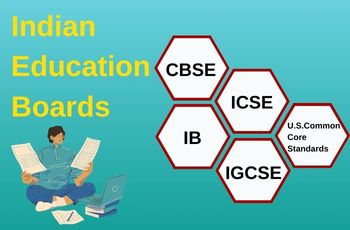Tripura Board Class 12 Business Studies Syllabus
Syllabus Subject -Business Studies (Class XII)
SYLLABUS
BUSINESS STUDIES (BSTF)
CLASS-XII
Full Marks-100
PART-A: PRINCIPLES AND FUNCTIONS OF MANAGEMENT-50 Marks /55 Periods
Unit-1: Nature and Significance of Management ( 6 marks / 6 Periods)
** Management- Concept, objectives, Importance.
** Management as Science ,Arts, Profession.
** Levels of Management.
** Management Function-Planning, Organising, Staffing, Directing Controlling.
** Coordination-Characteristics and Importance.
Unit-2: Principles of Management (6 marks / 6 Periods)
** Principles of Management- Concept, Nature and Significance.
** Fayol’s Principles of Modern Management.
** Taylor’s scientific Management- Principles and Techniques.
Unit-3: Business Eviroment ( 7 marks / 6 periods)
** Business Environment -Concept, Importance.
** Dimensions of Business Environment-Economic, Social, Technological, Political and Legal.
** Concept of Liberalisation, Privatisation and Globalisation.
** Impact of Government Policy changes on Business and Industry with special reference to liberalisation, privatization and gobalization.
Unit-4: Planning (6 marks / 7 periods)
** Concept, Importance, Limitations.
** Planning process.
** Types of plans- Objective, Strategy, Policy, Procedure, Method, Rule, Budget, Programme.
Unit-5: Organising (8marks / 8 periods)
** Concept and Importance.
** Steps in the process of organising.
** Structure of Organisation- Functional and Divisional.
** Formal and Informal Organisation.
** Delegation: Concept, Elements and Importance.
** Decentralization: Concept and Importance.
Unit-6: Staffing (4 marks / 7 periods)
** Concept and importance of staffing.
** Staffing as a part of human resource Management.
** Staffing process-
Recruitment – Meaning and Sources.
Selection-Process.
** Training and Development – Concept and Importance.
Unit-7: Directing (7 marks / 8 periods)
** Concept and importance.
** Elements of Directing
** Supervision-concept,
** Motivation- concept, Maslow’s Hierarchy of needs.
** Finacial and Non Financial Incentives.
** Leadership-concept, qualities of a good leader.
** Communication- concept, formal and informal communication, barriers to effective communication, How to overcome the barriers.
Unit-8: Controlling (6 marks / 7 periods)
** Concept and Importance.
** Relationship between Planning and Controlling.
** Steps in the pricess of control.
PART B: BUSINESS FINANCE AND MARKETING (40 marks / 45 periods)
** Unit-9 : Financial Management (11 marks / 12 periods)
** Concept, Objective of Financial Management.
** Decisions relating to Investment, Financing and Dividend.
** Financial Planning : Concept and Importance.
** Financial Structure : Concept and Factors affecting Structure.
** Fixed and Working Capital: Concept and Factors affecting its Requirements.
Unit-10: Financial Markets ( 9 marks /14 periods)
** Financial Markets : Concepts and types.
** Money market and its Instruments.
** Capital market and its types (primary and secondary).
** Stock Exchange -Functions, Trading & Settlement Procedure.
** Dematerialisation and Depositories (NSDL and CDSL).
** NSEI : Objectives, BSE: Objectives.
** Securities Exchange Board of India (SEBI) : Objectives and Functions.
Unit-11: Marketing Management (14 marks / 14 periods)
** Marketing – Meaning, Functions, Marketing vs Selling.
** Marketing Management Philosophies.
** Marketing Mix-Concept.
** Product- Concept, Branding, Labelling and Packaging.
** Price- factors determining price.
** Physical Distribution -Concept, Channels of distribution : types, choice of channels.
** Promotion- Concept, and Elements; Advertising- Concept, role, objections against Advertising, Personal selling-Concept and qualities of a good salesman, sales promotion-Concept and Techniques, Publicity- concept and role.
Unit-12: Consumer Protection (6 marks/ 5 periods)
** Concept and Importance of Consumer Protection.
** Consumer Protection Act 1986.
** Consumer and consumer protection.
** Right and Responsibilities of consumers.
** Redressal Machinery
** Remedies available.
** Consumer awareness – Role of Consumer organizations and NGO’s
You can also check here:




















Comments